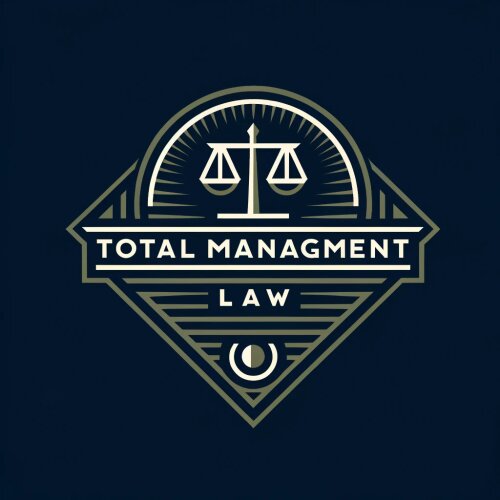Best Government Contract Lawyers in Thailand
Share your needs with us, get contacted by law firms.
Free. Takes 2 min.
Or refine your search by selecting a city:
List of the best lawyers in Thailand
Thailand Government Contract Legal Articles
Browse our 1 legal article about Government Contract in Thailand written by expert lawyers.
- Managing Risks in Public-Private Partnership Projects
- Public Procurement and Public-Private Partnerships (PPPs)Public procurement involves the acquisition of goods, services, and infrastructure by governmental entities from private sector entities. This interaction has historically enabled private companies to contribute to the development and management of public infrastructure, including roads, hospitals, schools, and other civic structures. Under conventional procurement... Read more →
About Government Contract Law in Thailand
Government Contract Law in Thailand governs the procurement processes and contracts between the government entities and private sector participants. This includes the rules and regulations for bidding, executing, and performing contracts for public works, goods, and services. The primary objective of these laws is to ensure transparency, fairness, and competitiveness in government procurement. Key legislative frameworks include the Public Procurement and Supplies Management Act, B.E 2560 (2017) and its subsequent amendments. Understanding these laws is crucial for businesses that wish to engage in contracts with government bodies in Thailand.
Why You May Need a Lawyer
There are several scenarios where having a lawyer experienced in government contract law might be essential, such as:
- Bid Preparation: Assisting in preparing bids to ensure compliance with complex procurement requirements.
- Contract Negotiation: Helping in negotiating terms and conditions favorable to the private party and legally compliant.
- Dispute Resolution: Addressing disputes that arise during the performance of a contract, including mediation, arbitration, or litigation.
- Compliance Issues: Providing advice on compliance with regulatory requirements and addressing non-compliance issues.
- Bid Protest: Filing protests against award decisions believed to be unfair or non-compliant with established protocols.
Local Laws Overview
The key elements of local laws in Thailand concerning government contracts include:
- Public Procurement and Supplies Management Act: This act sets out the principles for procurement, ensuring openness, transparency, and fairness in government contracts.
- Auction and Tender Processes: Generally, government contracts are awarded through competitive bidding processes, which must adhere to specific procedural guidelines.
- Anti-Corruption Laws: Stringent anti-corruption measures are in place to prevent fraud and ensure ethical behavior in the procurement process.
- Contract Performance Monitoring: There are laws governing the monitoring and execution of contracts, ensuring deliverables meet prescribed standards.
Frequently Asked Questions
What types of government contracts are available in Thailand?
Government contracts in Thailand cover areas such as construction, supply of goods, and provision of services, especially in public infrastructure projects, defense, and healthcare.
How is the bidding process conducted?
The bidding process is generally competitive and involves submission of proposals following a public notice. Bids are evaluated based on criteria such as price, quality, and compliance with tender specifications.
What legal standards govern government contracts in Thailand?
Government contracts are governed by the Public Procurement and Supplies Management Act and other associated regulations that ensure transparency and fairness.
Can a foreign company participate in Thai government contracts?
Yes, foreign companies can participate, but they might need to fulfill certain legal and regulatory requirements specific to foreign businesses.
What happens if there is a dispute during the execution of a contract?
Disputes are often resolved through negotiation, with the possibility of entering mediation, arbitration, or litigation as prescribed in the contract.
Are there penalties for non-compliance with government contracts?
Yes, non-compliance can lead to penalties including enforcement actions, financial damages, suspension, or even blacklisting from future contracts.
What role do anti-corruption policies play in government contracts?
Anti-corruption laws prevent and penalize fraudulent activities to ensure integrity and fairness in the procurement process.
How does the government ensure contract transparency?
The government ensures transparency through public notifications of bids, clear criteria for evaluation, and stringent audit and reporting processes.
Is legal representation necessary for government contract disputes?
While not mandatory, having a legal representative can be beneficial in navigating the complexities of dispute resolutions effectively.
How can I find out about upcoming government tender opportunities?
Tender opportunities are usually published on official government or agency websites and sometimes in national newspapers.
Additional Resources
For more information on government contracting in Thailand, the following resources may be helpful:
- Office of the Public Procurement and Policy Management (OPPPM): The official body overseeing public procurement policies.
- Board of Trade of Thailand: Provides information and guidance on doing business in Thailand, including government tenders.
- Local Chambers of Commerce: They can offer insights and support for companies, especially foreign ones, looking to partake in government contracts.
Next Steps
If you require legal assistance for government contracts in Thailand, consider the following steps:
- Research: Begin by gaining a basic understanding of government procurement policies relevant to your concerns.
- Consultation: Meet with a legal expert specializing in government contracts to discuss your needs or issues.
- Documentation: Gather all necessary documentation related to your contract or bidding process for review by your legal advisor.
- Ongoing Support: Consider hiring ongoing legal counsel to navigate continuous compliance and contract management.
Lawzana helps you find the best lawyers and law firms in Thailand through a curated and pre-screened list of qualified legal professionals. Our platform offers rankings and detailed profiles of attorneys and law firms, allowing you to compare based on practice areas, including Government Contract, experience, and client feedback.
Each profile includes a description of the firm's areas of practice, client reviews, team members and partners, year of establishment, spoken languages, office locations, contact information, social media presence, and any published articles or resources. Most firms on our platform speak English and are experienced in both local and international legal matters.
Get a quote from top-rated law firms in Thailand — quickly, securely, and without unnecessary hassle.
Disclaimer:
The information provided on this page is for general informational purposes only and does not constitute legal advice. While we strive to ensure the accuracy and relevance of the content, legal information may change over time, and interpretations of the law can vary. You should always consult with a qualified legal professional for advice specific to your situation.
We disclaim all liability for actions taken or not taken based on the content of this page. If you believe any information is incorrect or outdated, please contact us, and we will review and update it where appropriate.
Browse government contract law firms by city in Thailand
Refine your search by selecting a city.
















